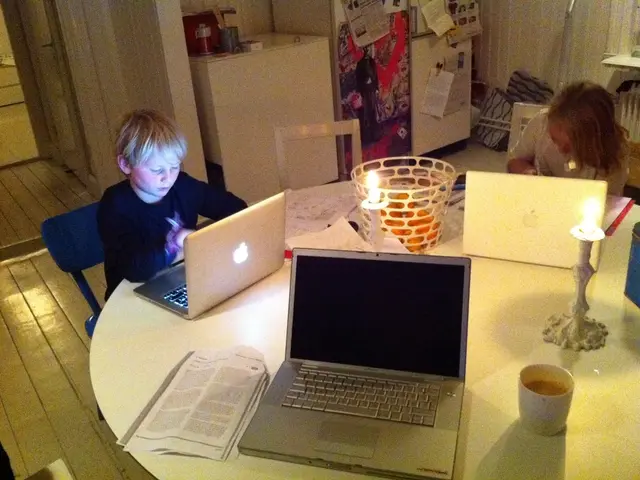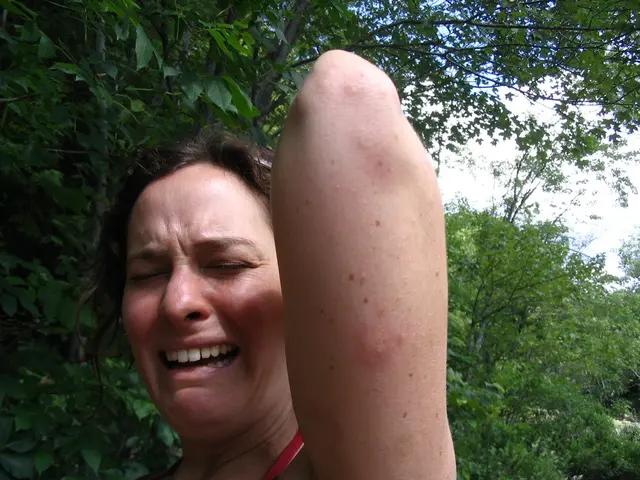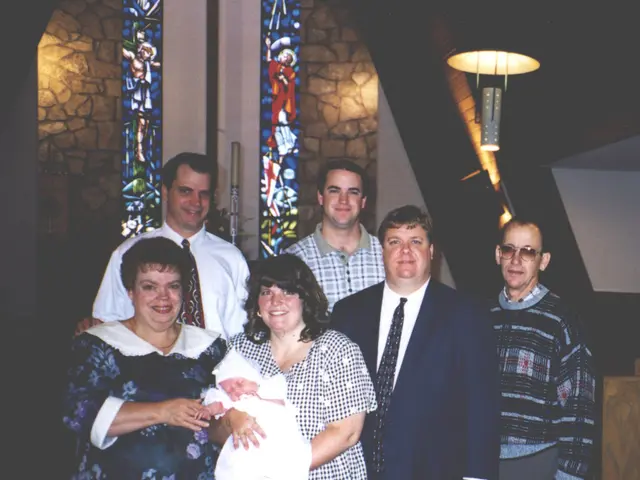Experiencing Life with Parkinson's Disease
A Tale of Love and Resilience: Navigating Parkinson's Disease Together
Meet Helen and Arthur Tan, a couple who met in Sydney after migrating from Malaysia decades ago. Helen was in nursing training, and Arthur was an accountant. Fast forward a few years, and they became parents to a daughter aged 41 and a son Matt, who is 39 and on the autism spectrum.
Matt's unique needs led Helen to pause her nursing career to focus on family. As the Tan children grew up, Helen switched gears, joining Australia Post as a manager for 25 years, while Arthur continued his path in accountancy. However, a gradual shift began to surface in Arthur's everyday activities.
"I noticed Arthur was struggling with simple tasks like tying his shoelaces," says Helen. "It reminded me of my first patient with Parkinson's when I was nursing." Arthur was eventually diagnosed with the disease, but their journey to a definitive diagnosis was marked by resistance on Arthur's part.
Helpers in Disguise
Unable to ignore the situation any longer, Helen persisted and found solace in Parkinson's NSW's InfoLine, run by Registered Parkinson's Nurses. The compassionate nurse on the line provided vital guidance and introduced them to a new neurologist, who gave them hope and unfolded a clear path forward.
A New Normal
With treatment, Arthur's condition improved, and he was able to enjoy various activities, such as Dance for Parkinson's, PD Warrior, Tai Chi, and hydrotherapy. Together, Arthur and Helen also participated in charity walks, raising funds for research and fostering their bond with the Parkinson's community.
Throughout this rollercoaster ride, Helen found herself neglecting her own health while juggling her responsibilities. A concerned call from her GP ultimately led to a lifesaving heart procedure.
Rekindling Family Dynamics
As Arthur's needs increased over time, Matt stepped up to support his father, altering the family dynamics. However, the changes proved challenging for Matt, who was also confronted with the realities of the pandemic, forcing him to miss his day program.
To provide Matt with a more stable environment and relieve some of the pressure on Helen, Arthur moved to a nursing home near her house. The staff worked tirelessly to meet Arthur's needs and help him maintain his favorite activities through virtual platforms like Zoom.
A Testament to Resilience
Today, Arthur continues to live a productive life in the nursing home, while Helen finds solace in caring for Matt and focusing on her own health. She reflects on the importance of caring for oneself and accepting help when needed, which she learned during this arduous but enlightening journey.
"I feel truly blessed," Helen shares. "Through this experience, I've grown as a person and learned the importance of community support, particularly from organizations like Parkinson's NSW."
Bequeathing a Legacy
In contemplating the future, one essential question arises: how can we support those living with Parkinson's beyond our lifetime? A bequest or gift in a will is a significant means of extending assistance to organizations like Parkinson's NSW, ensuring that they can continue providing invaluable support to families facing similar challenges.
Adapting to Change: Tips for Applying Makeup with Parkinson's
For individuals with Parkinson's who may find applying makeup challenging due to tremors, here are some helpful tips.
Preparation:
- Sit comfortably with good lighting.
- Use a stable, non-slip surface.
Application:
- Use larger makeup brushes for a more controlled application.
- Opt for cream or liquid foundations and concealers for easier blending.
- Consider using drawing tools to create defined, sharp lines for eyeliner and lipstick.
- Take breaks as needed to rest your arms and hands.
Embrace the Journey: Resources for Parkinson's Caregivers
Navigating the challenges of caregiving for a loved one with Parkinson's can be overwhelming. Here are some resources to help you along the way:
- Seek the guidance of professional care teams, including neurologists, physiotherapists, occupational therapists, and speech pathologists.
- Engage in self-care practices, such as counseling, journaling, and meditation, to maintain mental well-being.
- Financial planning is crucial for alleviating the financial stress associated with Parkinson's care. Consider long-term care insurance or setting aside savings for future needs.
- Connect with Parkinson's support groups and organizations to access emotional support, practical advice, and resources.
- Adopting a flexible and day-by-day approach to caregiving can help reduce stress and improve overall well-being for both caregivers and those with Parkinson's.
- Helen's nursing career took an unexpected turn when she decided to focus on family, especially as her son Matt, who is on the autism spectrum, required more attention.
- Arthur's career in accountancy continued for decades, but a gradual decline in his everyday abilities prompted Helen to seek answers, eventually leading to a diagnosis of Parkinson's disease.
- As part of her quest for answers, Helen reached out to Parkinson's NSW's InfoLine, a service provided by Registered Parkinson's Nurses, which proved to be a lifeline in understanding and navigating the complexities of the disease.
- In her new role as a caregiver and parent, Helen found it essential to prioritize her own health, seeking help when needed, such as her lifesaving heart procedure, realizing the importance of self-care in maintaining her overall health and well-ness.








